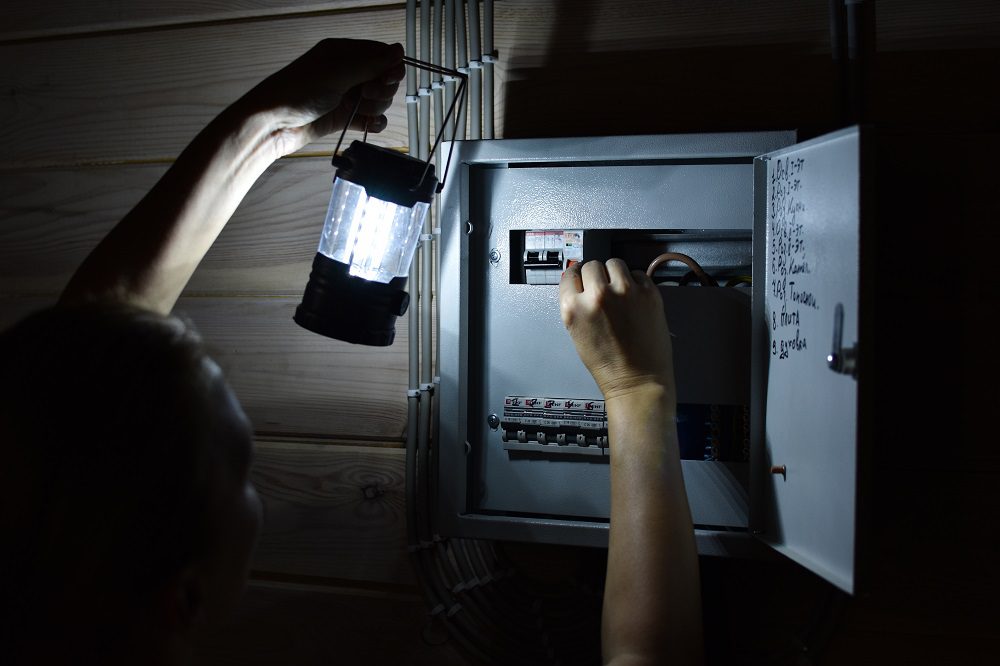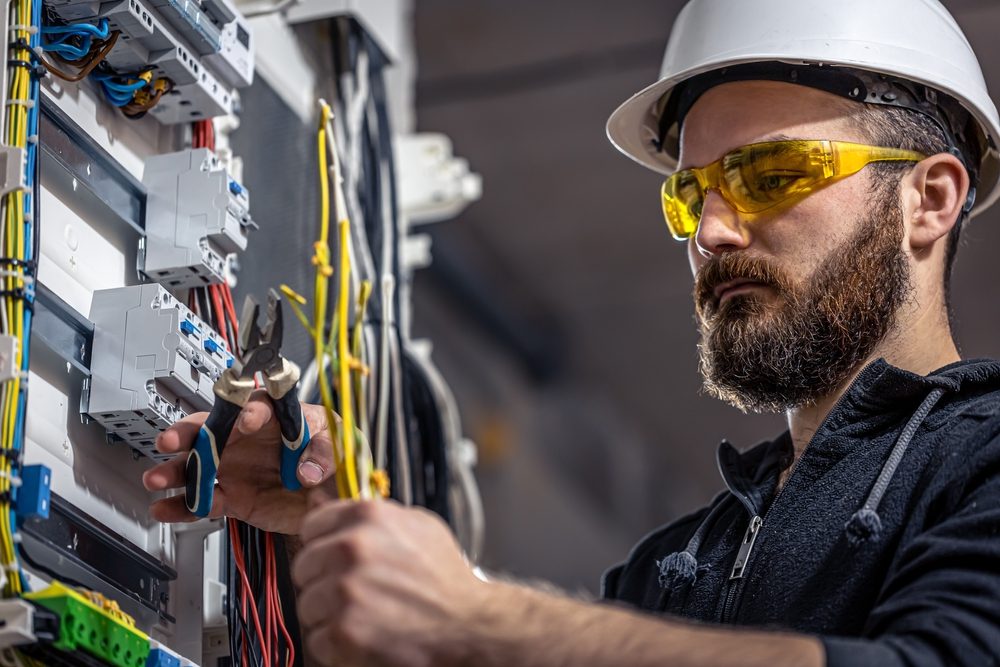
How To Tell When It’s Time for an Electrical Panel Upgrade in Charlotte, NC
Charlotte homeowners put heavy demand on electrical systems. Older panels built for 60 to 100 amps now support EV chargers, induction ranges, dual HVAC systems, and backyard offices. The panel is the traffic cop for all of it. If it underperforms, the home sees nuisance tripping, dimming, or heat at the breakers. If it fails, the risk rises from damaged electronics to unsafe wiring. Knowing when to upgrade saves money, reduces fire risk, and makes daily life smoother.
What an Electrical Panel Actually Does
An electrical panel distributes power from the utility to each circuit in the home. It houses the main disconnect and breakers that protect branch circuits. The panel’s amp rating must match the home’s load, and its breakers must clamp down on faults fast. A modern Charlotte home with gas heat and standard appliances may operate well on 150 amps. A home with electric heat, EV charging, hot tub, and workshop tools often needs 200 amps or more. The panel is not a storage device; it is a safety device. Age, corrosion, and overloaded circuits reduce that safety margin.
Clear Signs a Panel Upgrade Is Due
Frequent breaker trips point to overloaded circuits or weak breakers. If a kitchen microwave and toaster trip the same breaker every weekend, the load may exceed the circuit’s design, or the panel may not distribute demand well. Lights that flicker when the AC starts suggest voltage drop or a weak connection at the bus. Warm breakers, a panel door that feels hot, or a burnt odor indicate poor contact or arcing. Buzzing or crackling is never normal.
Homes with 60-amp service, fuses, or split-bus panels struggle with modern loads. Panels installed before the mid-1990s may lack the bus design and breaker technology expected today. Certain brands have documented safety issues. Federal Pacific Electric (FPE) Stab-Lok and Zinsco/Sylvania panels show higher failure-to-trip rates. If an inspection reveals one of these, replacement is the right call even if everything seems “fine.”
New load demands also trigger an upgrade. An EV charger at 40 to 60 amps, an all-electric range at 40 to 50 amps, or a hot tub at 30 to 60 amps adds substantial continuous load. A home addition, finished basement, or accessory dwelling unit needs extra spaces and amperage. If the panel is full and tandem breakers are jammed in every slot, the system needs more capacity or a subpanel planned by a licensed electrician.
Common Charlotte Scenarios We See
In older bungalows in Plaza Midwood and Dilworth, original 100-amp service often chokes once owners add a heat pump and EV charging. Ranch homes in Madison Park and Montclaire frequently run tandem breakers in crowded 20-space panels; heat and flicker show up during summer cooling. Newer builds in Ballantyne and Berewick may have 200 amps but lack space for a second EV charger or backyard pool equipment. Townhomes in South End see nuisance trips because kitchen and laundry circuits share space on older panels never intended for today’s appliances. These patterns repeat across Mecklenburg County: the home looks updated, but the panel stayed behind.
Safety Risks That Hide in Plain Sight
Overheating at breaker stab connections can carbonize the bus and cause intermittent power. Aluminum branch conductors, common in some 1960s–70s homes, need approved terminations and antioxidant paste; a modern panel with CO/ALR-compatible devices reduces risk. Double-lugged neutrals (two wires under one terminal) can loosen and arc. Corrosion from crawlspace moisture or laundry area humidity eats away at terminations. These conditions often show up as small clues first: a warm breaker face, a faint scorch mark, or a breaker that refuses to reset cleanly.


How to Judge Your Home’s Electrical Load
A quick screen helps start the decision:
- Panel rating and space: Is the main breaker 100 amps or less? Are most slots filled or using tandems?
- Major loads: Electric range, oven, dryer, heat pump, tankless water heater, hot tub, or EV charger present?
- Symptoms: Tripping, flicker, buzzing, warm cover, discolored breakers?
- Age and brand: Pre-1995 install? FPE Stab-Lok or Zinsco/Sylvania labeling?
- Future plans: Second EV, finished attic, detached garage workshop, or pool coming soon?
If two or more items raise concern, a licensed electrician should perform a load calculation. Ewing Electric Co. uses NEC demand factors, actual nameplate ratings, and your usage patterns to right-size the upgrade. That avoids overspending and prevents repeat work later.
What an Upgrade Involves in Charlotte
Most panel upgrades follow a clear process. First, a site visit confirms service size, grounding and bonding, meter base condition, and utility clearances. Duke Energy or the local utility must coordinate a disconnect and reconnect. The City of Charlotte and Mecklenburg County handle permits and inspections. A proper job brings grounding up to current code, which may include new ground rods, bonding the water line, and replacing the main bonding jumper if needed.
A clean upgrade typically replaces the meter base, service mast or SEC, panel, breakers, and labeling. Surge protection at the service helps protect electronics from storms that hit South Charlotte and Lake Wylie areas. In many cases, the home is without power for 4 to 8 hours. Complex jobs can take most of a day. Ewing Electric Co. schedules with the utility to minimize downtime and keeps refrigerators cold with planned timing.
150 Amp vs. 200 Amp vs. 320 Amp: Right-Sizing Matters
A condo or electrical repair service Ewing Electric Co small single-family home with gas heat and standard appliances usually performs well on 150 amps. A typical Charlotte single-family with heat pump, electric range, and one EV charger does well at 200 amps with space to grow. Large homes with all-electric heat, dual EVs, workshop equipment, and a pool may require 320-amp service with two 200-amp panels or a 42-space panel plus a subpanel. Bigger is not always better; service size affects utility equipment and cost. The judgment lives in the load calc and the homeowner’s realistic plans for the next 5 to 10 years.
Cost, Timelines, and Real Numbers
For a straightforward 200-amp panel replacement in Charlotte with modern grounding and whole-home surge protection, homeowners often spend in the low-to-mid four figures. If the meter base, mast, or service entrance conductors require replacement, costs increase. Adding an EV charger circuit or subpanel during the same visit can be efficient, since permitting and scheduling are already in motion. Lead time runs a few days to a couple of weeks depending on utility coordination and inspection windows. Storm seasons and holidays can stretch utility scheduling. A reputable contractor will present a clear scope, parts list, and timeline before any power is cut.
What Changes After the Upgrade
Lights stop dipping when the HVAC starts. Breakers stop nuisance tripping during dinner hour. EV charging runs overnight without stealing from the dryer. The panel labeling is clear, the deadfront seats tight, and the breakers snap in with even tension. A surge device adds a layer of protection for smart thermostats, routers, and TVs. Insurance carriers and home inspectors view a modern, code-compliant service as a positive. Resale in tight neighborhoods like Cotswold and Sedgefield benefits from clean electrical reports.
When Repair Beats Replacement
Sometimes the panel itself is fine, and the pain lives in a few circuits. Rebalancing loads, replacing weak breakers, tightening neutrals, and adding a dedicated small appliance circuit in the kitchen can solve the problem. A subpanel may be smarter than a full service upgrade when the main is sound but full. Ewing Electric Co. handles electrical repair Charlotte NC homeowners request daily: breaker replacements, GFCI/AFCI additions, and correcting double-lugged neutrals. An honest assessment weighs repair against upgrade and explains the trade-offs.
Permit, Code, and Inspection Realities
Charlotte-Mecklenburg follows the North Carolina Electrical Code based on the NEC with state amendments. AFCI and GFCI requirements expand over time. Grounding and bonding rules update as well. A legal upgrade includes a posted permit and a green tag after inspection. The utility will not re-energize without that approval. Homeowners who consider a weekend DIY panel swap usually stop after learning the permit and utility steps. It is high-risk work with high stakes.
How Ewing Electric Co. Approaches Panel Upgrades
The team starts with a conversation about lifestyle, not a cookie-cutter spec. Heavy cooking, heat type, shop tools, and planned EV adoption shape the plan. A written load calculation follows. The proposal lists brand, amp rating, breaker count, surge device model, grounding updates, and any meter base work. On install day, the crew protects floors, verifies torque on all lugs with a calibrated tool, and megger-tests questionable feeders. Photos document terminations and labels. After inspection and re-energizing, the electrician walks the homeowner through the panel map and shows how to reset AFCI/GFCI breakers. Follow-up covers any new appliance circuits or EV charger settings.
A Quick Homeowner Check Before Calling
- Open the panel door and read the main breaker rating: 60, 100, 150, or 200 amps?
- Look for brand names: Square D, Siemens, Eaton are common modern brands; FPE or Zinsco suggests replacement.
- Note symptoms: tripping, flicker, buzzing, warm cover, or scorch marks.
- List big loads: EV charger, hot tub, range, dryer, tankless water heater, workshop tools.
- Think ahead 5 years: second EV, addition, finished space, or pool?
Bring that list to a licensed electrician. It shortens the process and leads to a better plan.
Ready To Upgrade or Unsure? Talk With a Local Pro
Ewing Electric Co. serves homeowners across Charlotte, including SouthPark, University City, Steele Creek, NoDa, and Matthews. Whether it is a full 200-amp service upgrade, a safe EV charger install, or targeted electrical repair Charlotte NC residents ask for after an inspection report, the team brings practical, code-true solutions. If the signs above sound familiar, schedule a load evaluation. A right-sized panel makes the home safer, quieter, and ready for what is next.

Ewing Electric Co provides dependable residential and commercial electrical services in Charlotte, NC. Family-owned for over 35 years, we handle electrical panel upgrades, EV charger installation, generator installation, whole-home rewiring, and 24/7 emergency repairs. Our licensed electricians deliver code-compliant, energy-efficient solutions with honest pricing and careful workmanship. From quick home fixes to full commercial installations, we’re known for reliable service done right the first time. Proudly serving Charlotte, Matthews, Mint Hill, and nearby communities. Ewing Electric Co
7316 Wallace Rd STE D Phone: (704) 804-3320 Website:
https://ewingelectricco.com/ |
Google Site
Social:
Facebook |
Instagram |
Twitter
Map: View on Google Maps
Charlotte,
NC
28212,
USA